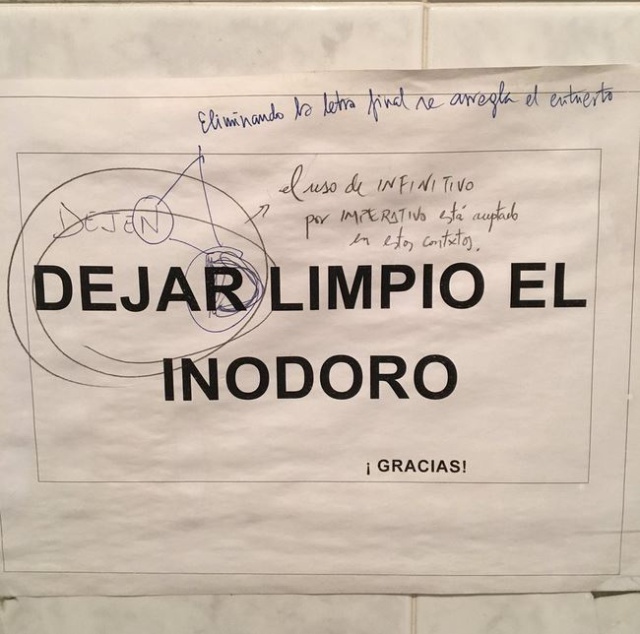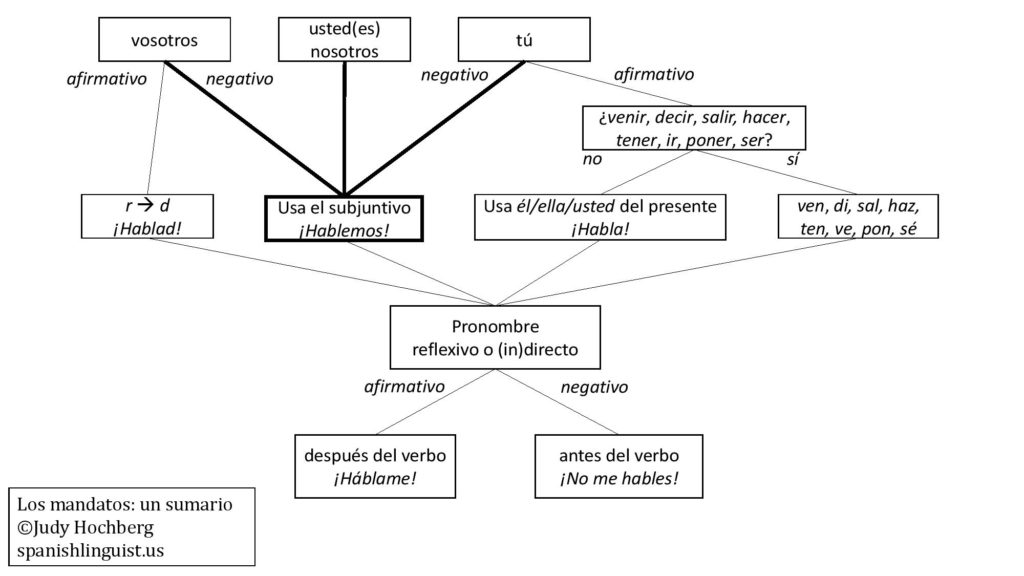I made this short PowerPoint to explain why some command forms have accent marks (some only when pronouns are added) and some don’t.
Accent marks in commands
4 Replies
I made this short PowerPoint to explain why some command forms have accent marks (some only when pronouns are added) and some don’t.
Reader Alice B. shared with me a decorous linguistic debate conducted on the wall of a toilet stall in Sevilla. The sign that sparked the debate, complete with its series of scribbled-on comments, is shown below. This article (in Spanish) discusses the debate at length, and includes various tweets that it inspired.
[post continues after graphic]

To summarize the debate:
I love Spanish! Can you think of any aspect of English grammar that would inspire a similar series of emendations and comments?
An upcoming review session with a student who is struggling with Spanish commands inspired me to make this chart. Some notes:
